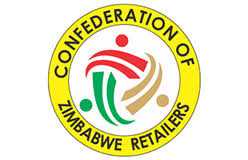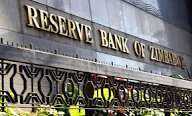
Zim Now Writer
The Confederation of Zimbabwe Retailers has made an urgent appeal to the Presidium, seeking intervention to save what remains of the formal retail and wholesale sector in the country. This follows the recent closure of several branches of major retail chains, including N. Richards, Spar, and Choppies, signaling a growing crisis in the industry.
The CZR, which serves as the unified voice of Zimbabwe’s retail sector, is dedicated to advocating for critical policy reforms to create a vibrant and sustainable retail environment.
The organization highlights recent closures such as N. Richards’ Hatcliff and Tynwald outlets, Spar Zimbabwe’s Queensdale branch, and Choppies’ exit from the market. Additionally, Mohammed Mussa has reduced its shop space by 60%, further underscoring the challenges faced by the sector.
According to the CZR president, Dr Denford Mutashu, the formal retail sector is grappling with fiscal, monetary, regulatory, and statutory frameworks that disproportionately favour the informal sector. This uneven playing field has enabled unregulated businesses to dominate the market by offering goods at lower prices while evading statutory obligations such as taxes, licensing fees, and labour laws.
“The growing levels of informalisation have led to a significant loss of market share for formal businesses.This unregulated sector thrives at the expense of compliance, creating an unsustainable environment for formal operators,” he said in a statement.
The CZR pinpointed the dual currency system as one of the most pressing challenges. Formal businesses are compelled to accept the Zimbabwean dollars, ZiG, despite operating within a predominantly dollarized supply chain.
“Operational costs such as fuel for generators must be paid in USD, while 80% of sales are denominated in local currency,” the statement explained. “Punitive bank charges, including the Intermediated Money Transfer Tax further encourage cash transactions, driving consumers to the informal sector and reducing foot traffic in formal retail stores.”
Related Stories
Another significant challenge identified by the CZR is the heavy regulatory burden placed on formal retailers and wholesalers. With over 30 separate licensing costs, compliance often exceeds the profits these businesses generate, eroding their viability.
And while the Confederation acknowledged the Ministry of Industry and Commerce’s continued support, it emphasized that the root causes of these challenges are fiscal and monetary in nature, necessitating urgent and decisive action.
The CZR outlined several mitigation measures to address the crisis and revive the formal retail and wholesale sector:
> Formalizing the Informal Sector: The CZR urges the government to fast-track efforts to bring the informal sector into the formal economy, ensuring equitable competition and tax compliance across all market players.
> Reducing Regulatory Burdens: Streamlining and rationalizing licensing and compliance requirements will alleviate pressure on formal businesses and enhance their sustainability.
> Supporting Formal Retailers and Wholesalers: The CZR calls for immediate steps to cushion formal businesses against high operating costs. These include providing affordable financing options and addressing challenges posed by the dual currency system.
> Levelling the Playing Field: The government should implement specific measures to regulate and oversee the informal sector, ensuring fair competition and statutory compliance.
In the appeal CZR urged President Emmerson Mnangagwa and the Presidium to prioritize interventions that will save jobs and stem the tide of shop closures and retrenchments.
“Without urgent action, the formal retail and wholesale sector faces further decline, with devastating consequences for employment and economic stability,” the statement warned.



















Leave Comments